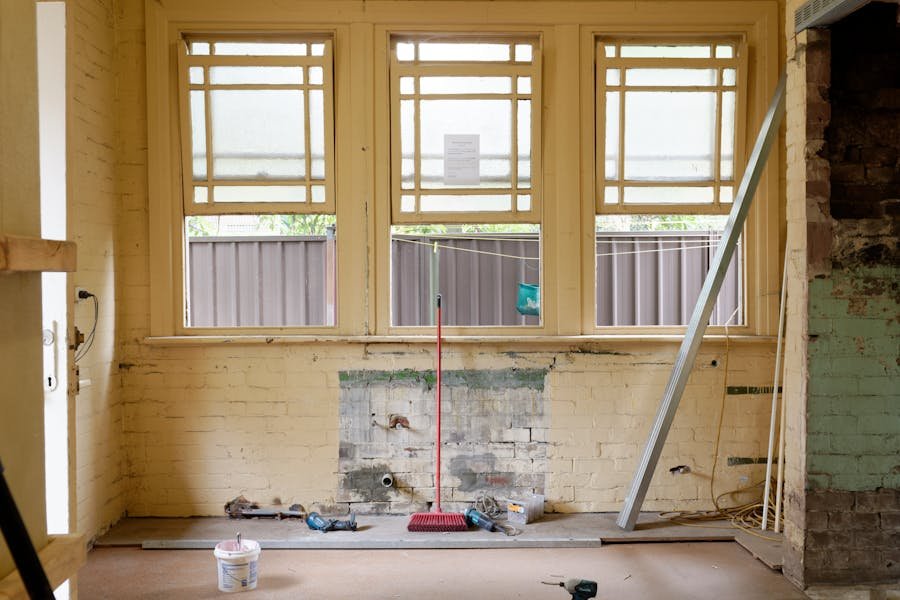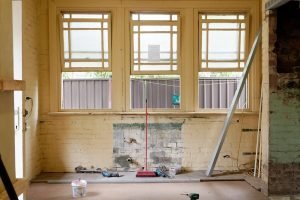What to Expect During a Major Home Renovation
A major home renovation is one of the most exciting — and sometimes nerve-wracking — projects you can take on as a homeowner. Whether you’re transforming a dated kitchen into a light-filled family hub, reconfiguring your living space for modern open-plan living, or adding an extension to create extra room, the rewards can be huge. Yet many people underestimate what’s really involved. The reality is that a major renovation can turn your daily routine upside down for weeks or even months. Understanding what to expect can help you feel more in control, avoid common pitfalls and make the journey smoother for everyone involved.
Across the UK, thousands of homeowners choose to renovate instead of moving, adding value and personalising their homes in the process. But living through building work can test your patience. Dust, noise, decisions to make at short notice and inevitable moments of frustration are all part of the ride. The good news is that with a clear plan, the right team and realistic expectations, your renovation can be a positive experience that ends with a home you’re proud of.
Preparing for the Disruption
One of the biggest shocks for many homeowners is just how much a major renovation can affect daily life. Even if only part of your house is being worked on, the disruption can spread. Builders, electricians, plumbers and decorators will be moving in and out of your home, often from early in the morning until late afternoon. Dust can travel far beyond the immediate work area, and noise can make working from home or relaxing in the evening more challenging.
Being prepared is key. Before work begins, take time to pack away or protect your furniture and belongings. Cover floors with protective sheeting if your builder doesn’t do this for you. It’s also wise to set aside a safe, tidy area where the family can retreat — somewhere clean and dust-free to eat, relax and escape the chaos for a while.
Living In or Moving Out
One of the biggest decisions is whether to stay put or move out during the renovation. For smaller jobs, staying in the house is usually manageable, especially if the work is contained to one area. But for bigger projects like structural alterations, full rewiring or knocking through rooms, many homeowners choose to move out temporarily. This might mean staying with family, renting short-term accommodation or living in part of the house that’s sealed off from the building work.
There’s no one-size-fits-all answer. Moving out can make life easier and allow the builders to work faster, but it comes with extra costs. If you do stay, setting some ground rules with your building team about working hours, site access and daily clean-ups can help everyone coexist more happily.
Setting a Realistic Budget
When you watch renovation shows on TV, it’s easy to think the biggest challenge is choosing the right paint colour or kitchen worktop. In reality, one of the hardest parts is sticking to a budget. Unexpected costs are common, especially in older homes where hidden problems can lurk behind walls and under floors.
A good builder will advise you to set aside a contingency fund, usually around ten to fifteen percent of your overall budget. This gives you breathing space if something unexpected crops up — like discovering damp, structural issues or outdated electrics that need upgrading to meet building regulations. Having that buffer can turn a crisis into a manageable setback.
Working with the Right Team
The success of any major renovation depends heavily on your choice of builders and tradespeople. Recommendations from friends, neighbours or trusted local businesses are often the best place to start. Always check that your builder is properly insured and ideally a member of a recognised trade body.
Communication is crucial. Make sure you’re comfortable asking questions and that your builder explains things clearly. A clear, written contract should outline what’s included, payment schedules and what happens if plans change along the way. A good builder will be upfront about timescales and keep you updated if delays look likely.
Understanding the Timeline
One of the biggest surprises for many homeowners is how long a major renovation can take. Even with the best planning, building work can be delayed by bad weather, supply chain issues or the discovery of hidden problems. Your builder should provide an estimated timeline, but it’s wise to stay flexible.
Renovations often follow a general sequence: demolition and strip-out come first, followed by structural changes such as knocking down walls or building extensions. Next comes the ‘first fix’ stage, where electricians and plumbers install wiring and pipes before walls and floors are finished. Once insulation and plastering are complete, the ‘second fix’ stage includes fitting sockets, switches, radiators and light fixtures.
The final stages are decoration, flooring and any finishing touches. Many homeowners find it’s the last ten percent of a renovation that feels the slowest, as small details and snags are put right.
Dust, Noise and Mess
It’s impossible to sugar-coat the reality — major renovations are messy. Even the tidiest builders can’t completely contain the dust created by knocking down walls or cutting materials. Plastic sheeting, dust barriers and frequent vacuuming help, but be prepared for some daily cleaning to keep your living spaces bearable.
Noise can also take its toll. Drilling, hammering and heavy machinery are part of the process. If you work from home, you might need to plan calls and meetings around the noisiest stages of the build. A good builder will try to minimise disruption, but it helps to have realistic expectations about the impact on your daily routine.
Making Decisions as You Go
One thing many people underestimate is the number of decisions they’ll have to make during a major renovation. Even with detailed plans, there will be choices about materials, finishes, fixtures and layouts as the work progresses. Your builder might need you to decide quickly about where to position plug sockets, what kind of door handles to use or which tiles to order.
Trying to make too many decisions on the spot can feel overwhelming. The more you can plan ahead, the better. Visiting showrooms, ordering samples and setting a clear style for your renovation will help you feel more confident. Keep a record of suppliers, product codes and costs so you can refer to them easily if changes crop up.
Keeping the Neighbours on Side
A major renovation doesn’t just affect your household — your neighbours will notice it too. Building work can be noisy and disruptive, especially if access is tight or parking becomes an issue. A quick chat with your neighbours before work begins can help manage expectations and avoid potential disputes.
Let them know how long the work is likely to last, when noisy stages will take place and who to contact if they have concerns. A considerate builder will also do their best to minimise disruption, keeping the site tidy and sticking to reasonable working hours.
Staying on Top of Building Regulations
In the UK, most major renovations will need to comply with current building regulations. This ensures that structural changes, electrics, plumbing and fire safety measures meet national standards. Some work may also require planning permission, depending on the scale of your project and whether your home is listed or in a conservation area.
A reputable builder or architect will guide you through the regulations and arrange for inspections by building control officers at different stages. Failing to comply with regulations can cause problems when you come to sell your home, so it’s worth getting it right first time.
Managing Unexpected Problems
Even with the best planning, surprises can happen. Opening up walls can reveal outdated wiring, damp or rotten timbers that need replacing. Weather delays or supply chain problems can push back timelines. While frustrating, it’s important to stay calm and work with your builder to find solutions.
Good builders will keep you informed about issues as they arise and provide options to keep the project moving. Your contingency fund will help cover unexpected costs, and regular check-ins can prevent small problems from escalating.
Tracking Progress and Payments
Keeping track of what’s been done, what’s still outstanding and how much you’ve spent so far is essential during a big renovation. Many homeowners keep a notebook or spreadsheet to log key dates, deliveries, payments and any changes to the original plans.
Most builders will agree a payment schedule upfront, with staged payments due as work progresses. Never pay for the entire job in advance, and always make sure you’re happy with the quality of work at each stage before releasing the next payment. Clear communication can prevent misunderstandings and protect your investment.
Dealing with Snagging
Even the best builders sometimes leave behind small imperfections — this is known as snagging. Once the main work is complete, walk through the property with your builder and make a note of any minor issues that need fixing. This could be anything from a scuffed skirting board to a sticking door or paint touch-ups.
Reputable builders expect this final tidy-up stage and will return to put things right. Keep a written record of what you’ve agreed and check that each item is completed to a standard you’re happy with.
Enjoying the Finished Result
When the last tool is packed away and the builders have gone, you’ll finally get to enjoy the space you’ve worked so hard to create. Many homeowners find that living through a renovation, while challenging, gives them an even greater sense of satisfaction when it’s finished. Taking photos along the way can remind you just how far the house has come.
A newly renovated home can bring huge benefits — from more space for family life to better energy efficiency and increased property value. While the process can feel daunting at times, being well prepared, flexible and informed makes all the difference.














Post Comment